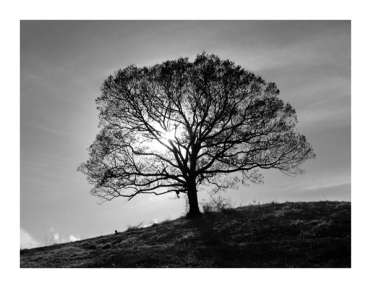Contemplation is a gift. There is nothing we can do to earn it. All we have to do is “be present and show up.” It seems we are always “somewhere else.” Contemplation is the gift of “high and holy leisure” for the purpose, if we can call it that, of being present to the mystery of life and the fullness of being. It is the capacity to quiet the mind of its restless chatter and to observe the moment to moment wonder of life without grasping, offering an opinion, making judgments, or interfering.
Each morning when I watch the birds flutter their wings and bathe at our bird bath outside my window as the sun rises serenely over the hills and shines upon the grass that is glistening with frost in cold winter air, I am transported if only briefly into an open and boundless space of contemplative silence. And as I cast my gaze upon more birds that are merrily hopping among the branches of a nearby tree, taking turns in gliding effortlessly to the bird feeder, I am carried away with nature’s enchantment. In this small microcosm one senses the hidden presence of the vast microcosm, the interconnectedness of all things in the natural world of which we human beings are an integral part. Nature has been doing its thing for millions of years, and here we are in our brief sojourn between life and death as both participants and witnesses to this continuous unfolding mystery across time and space.
Contemplative practice is present in one form or another in all of the world’s living wisdom traditions, both east and west. Each tradition attempts to see life entire and whole, and to find meaning amidst the confusion, but each tradition approaches the Mystery from a particular view. The same is true of individuals. Each of us may perceive a vision of wholeness in the gift of quiet gaze upon the timeless and ever-changing flow of creation and destruction, and yet we will each perceive it through the lens and filter of our own humanity, our particular personality and temperament, and all the memories and experiences that have shaped us into the unique persons we are.
Contemplation requires the high leisure of mindfulness and non-attachment from both conscious agendas and unconscious routines. But contemplation is paradoxical. It also involves a capacity to subjectively participate in the Mystery of life, to recognize ourselves as both the observer and that which is observed, where the perspective shifts back and forth from moment to moment.
Contemplation involves both an outward gaze at nature’s infinite wonders and an inward gaze at the mental infinity that lies within. In some astonishing way these two infinities of matter and mind, sentience and awareness, are joined as one. Precisely HOW they are con-joined is the rarified business of philosophers, and it doesn’t look like the debate between them will be resolved any time soon.
Today in our noisy and distracted world contemplation is more rare than it ought to be. Information and knowledge are useful for achieving instrumental goals and utilitarian benefits, but they are not contemplation, which is the beginning of wisdom.
In the weeks and months to come I hope to have more to say about the gift of contemplation. All contemplation begins and ends in the depths of silence, of sentient experience and receptive awareness before the first words are spoken, and so for now I will sign off.
Related articles
- How Contemplation Changes Our Brains For The Better (bigthink.com)
- What Is Contemplation? (jacksaunsea.wordpress.com)
- The Need of Contemplation (jacksaunsea.wordpress.com)

